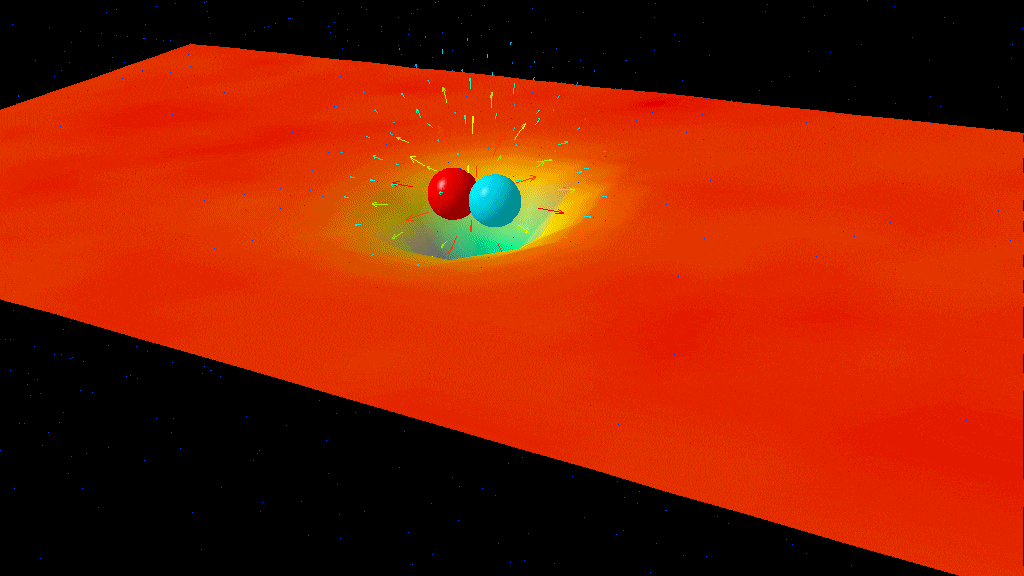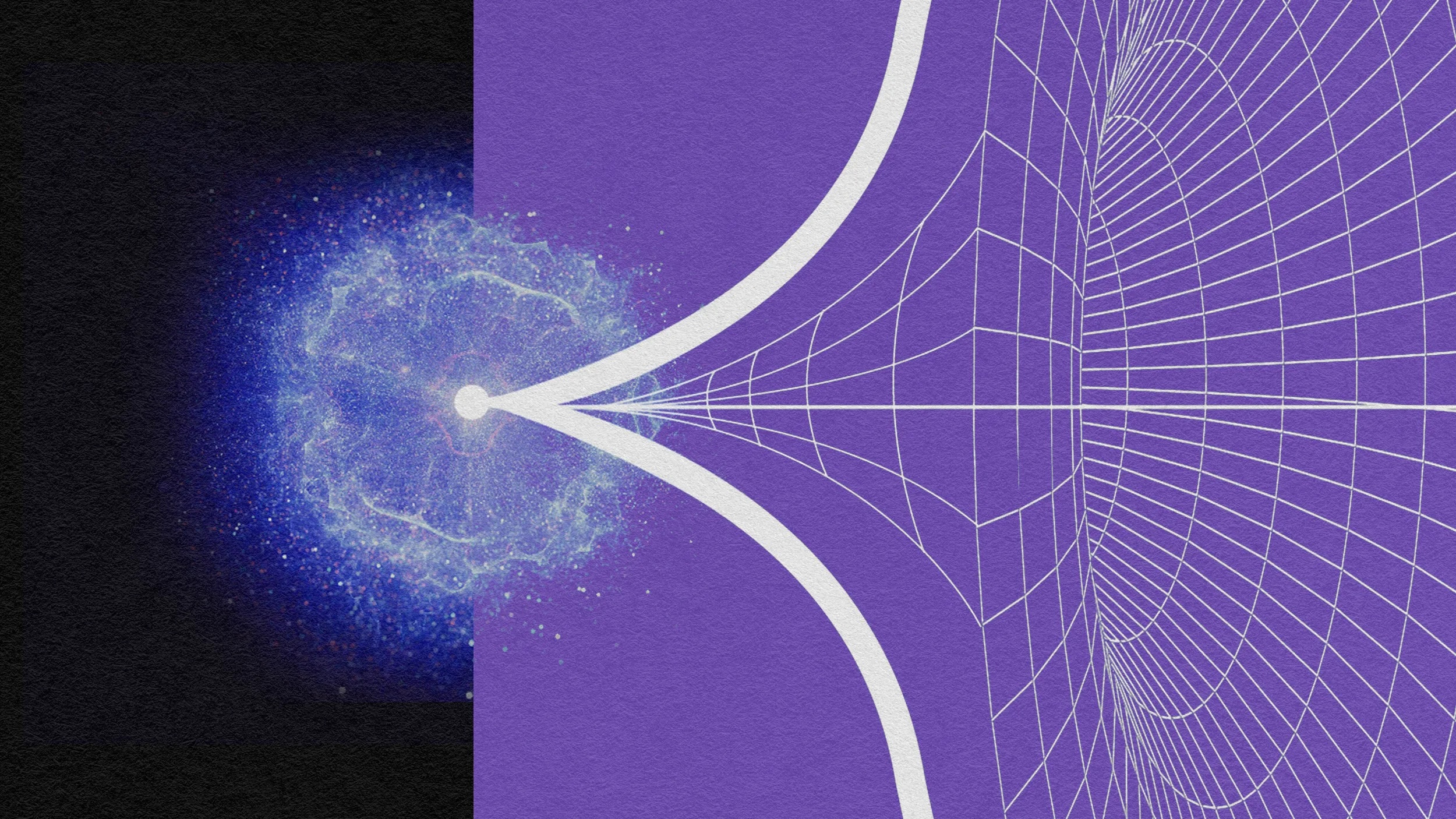10 great physics courses you can take online right now, for free

Unsplash
- You can find numerous physics courses currently available online for free.
- Courses are taught by instructors with amazing credits like Nobel Prizes and field-defining work.
- Topics range from introductory to Einstein’s theory of relativity, particle physics, dark energy, quantum mechanics, and more.
The internet has in many ways fulfilled its educational promise and can be an amazing resource to learn pretty much anything. This is especially true if you have an interest in physics, the study of matter, energy and the fundamental interactions and forces of our universe. There are hundreds of great free courses available, with field-leading and even Nobel Prize-winning instructors.
To get you started, we distilled through the resources to come up with a list of 10 courses you can take right now and get your physics journey under way.
Here we go:
1. How Things Work: An Introduction to Physics
A great intro course that looks at physics in the context of everyday objects and processes. How does skating work? Why do things fall? The course uses the cases of ramps, wheels, bumper cars and more to illuminate the physics of life around you. It is taught by the University of Virginia physics professor Louis A. Bloomfield, a noted science educator, lecturer, author, as well as tv host.
2. Fundamentals of Physics I
If you want to brush up on the essential concepts of physics, this course from Yale University might be for you. Taught by the physics professor Ramamurti Shankar, the lessons cover the principles and methods of physics, focusing on problem solving, quantitative reasoning and such concepts as Newtonian mechanics, special relativity, gravitation, waves, and thermodynamics.
3. Astrophysics: The Violent Universe
Would you like to know about some of the most mysterious phenomena in the Universe? This fun course will bring you up to speed on white dwarfs, supernovae, neutron stars and black holes.
The 9-week course from the Australian National University has over 60,000 people enrolled, and is taught by Brian Schmidt, a Nobel Prize-winning physicist for his work on discovering dark energy. His co-teacher is the science educator and astrophysics researcher Paul Francis, who has a PhD from the University of Cambridge and has worked with NASA. He is particularly known for working on the spectra of quasars.
4. From the Big Bang to Dark Energy
Want to get a general introduction to some of the main ideas about how the Universe was formed and where it’s going? The Big Bang, the formation of the elements, the Higgs Boson, dark matter, dark energy and anti-matter all feature prominently in this 14-hour course, offered by the University of Tokyo.
It is taught by Hitoshi Murayama, a University of California, Berkley physics professor and the Director of Kavli Institute for the Physics and Mathematics of the Universe.
5. Physics: Intro to Electricity & Magnetism
Want to understand Electricity and Magnetism? Take this course that currently has over 16,000 online students! This course was created by Scott Redmond, who worked previously in support of the International Space Station as a Mission Operations Analyst and conducted astronaut training before turning to teaching physics. The course offers 46 lectures in over 4 hours of video content and additional materials.
6. Understanding Einstein: The Special Theory of Relativity
This interesting 8-week course, taught by Stanford University’s Academic Director and historian of science Larry Randles Lagerstrom, goes deep into how Einstein came up with his famous theory. While setting up the background in both history and theory, the class provides a richer understanding of the theory of relativity itself.
7. Quantum Mechanics: Wavefunctions, Operators, and Expectation Values
This advanced 7-week course from MIT will teach you the basics of quantum mechanics, introducing such concepts as wavefunctions, the Schrodinger equation, uncertainty relations and the properties of quantum observables. The course is intended for people with previous college-level calculus and physics courses under their belt.
The currently archived but available course is taught by the MIT physics professor Barton Zwiebach, a specialist in string theory and theoretical particle physics, along with MIT physics lecturer Jolyon Bloomfield.
8. Particle Physics: an Introduction
If learning about the workings of very small things sounds appealing and you love supercolliders, this is the course for you. In this class you will learn about subatomic physics, including the properties of atomic nuclei, how to detect and accelerate particles, as well as about electromagnetic, strong and weak interactions. And, of course, the Higgs Boson makes an appearance. The lessons will also talk about how to connect particle physics to astrophysics and the larger questions of the Universe.
This 31-hour course from the University of Geneva is taught by professor Marin Pohl, who works in experimental particle physics on European colliders like the LHC (Large Hadron Collider) in Switzerland. His current focus is astroparticle physics in space. The course’s second teacher is assistant professor Anna Sfyrla, an experimental particle physicist, who teachers at the University of Geneva.
9. Fundamental Lessons from String Theory
Is the Universe made of strings? If you’re ready to dive into some of the headier explanations for everything in existence, take this great master class which can be completed in a few hours. It is taught by the Harvard University physics professor and string theory expert Cumrun Vafa, and was developed with the world-renowned string theorist Andrew Strominger.
10. Relativity and Astrophysics
If you want to further under understanding of Einstein’s theory of relativity, you’d be interested in its connection to astronomy as explored in this course from Cornell University. Taught by astronomy professor David F. Chernoff, an expert in theoretical astrophysics, the lessons will deepen your knowledge by zeroing in on special and general relativity as well as experimental tests you can carry out to study them. You will also get to analyze paradoxes in special relativity and learn how relativity affects daily situations.
The prerequisite for this 4-week (currently archived but available) course requires at least high school level math and physics or an intro college course in both.





